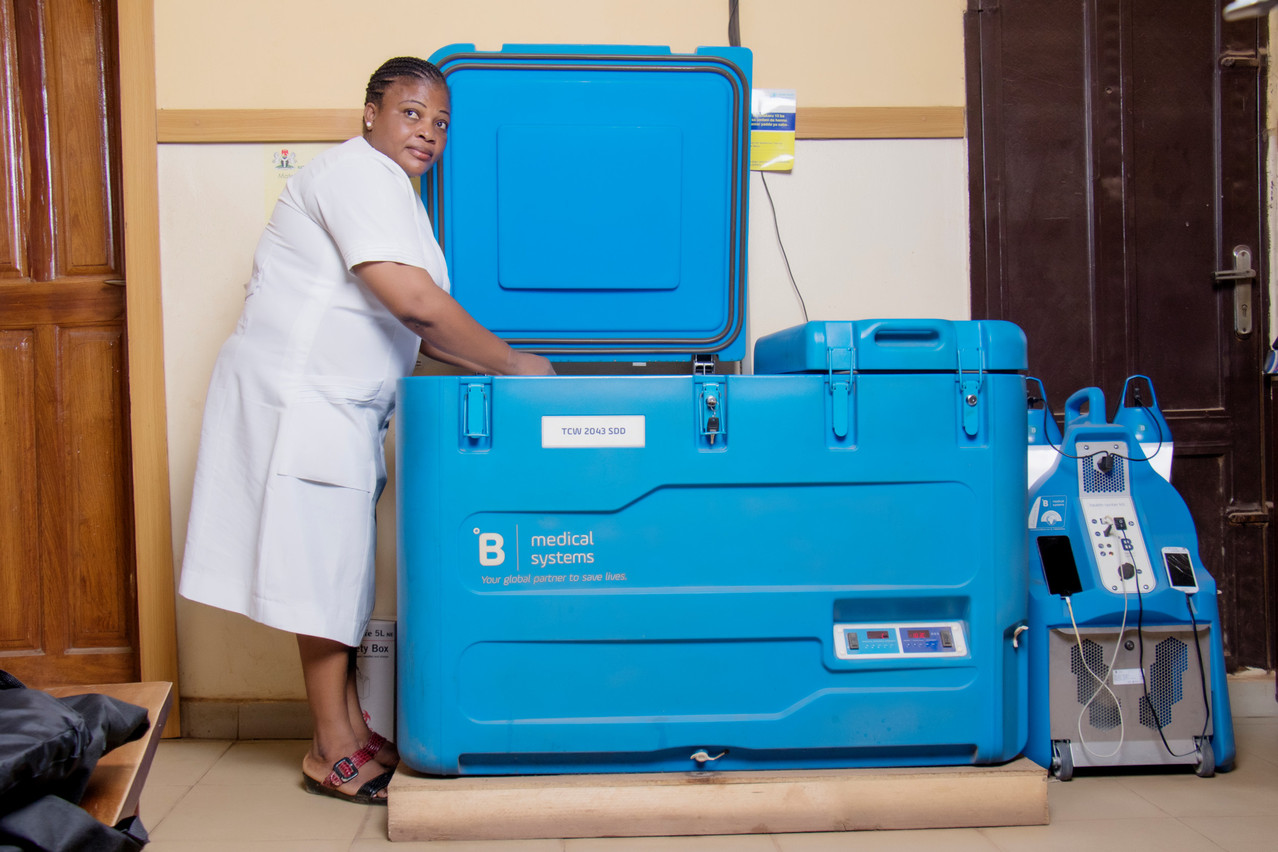In Madagascar, as in many other parts of the world, the lack of reliable electricity supply, logistics facilities, and infrastructure can cause obstacles to providing quality healthcare services, including vaccinations, in rural and remote areas. Potential consequences are vaccines losing their potency, a general lack of hygiene, and a low quality of life.
The “Trifactor” solution project led by B Medical Systems, a medical cold chain company based in Hosingen in the North of Luxembourg, with the support of the co-financing of the Business Partnership Facility (BPF), solves some of these issues.
The project consists of the combined use of solar vaccine refrigerators and health centre kits from B Medical Systems and the AURA disinfectant from Solea. It was implemented across remote villages in Madagascar with the help of B Medical Systems’ local partner, DCO Consulting, and included a training component for the local healthcare workers on how to use the devices. The objective? Improve healthcare access and delivery.
Since the solar-powered vaccine refrigerators ensure the safe storage of vaccines, they avert the need for people to travel to nearby towns to get vaccinated, and thus increase the vaccination rate, as the journey on foot to nearby towns can otherwise span up to 10-25 kilometres. The health centre kits, powered by the excess power from the solar cells of the refrigerators, are used to provide essential infrastructure to remote health centres. Finally, the AURA disinfectant guarantees safe and easy sanitation of treatment facilities after medical procedures.
This project supported by the BPF in 2020 does not only improve the capability of the centres to provide quality healthcare. It also has an economic impact: as the devices are powered by solar energy, the electricity bill of these facilities decreases and with it the burden of operational costs. Furthermore, the daily number of people coming for vaccination has increased significantly, and immunization campaigns have become a routine procedure at these health centres.
A co-financing for innovative and sustainable projects
Each year, the BPF supports projects that contribute to the achievement of the , and to bringing innovation closer to populations in need, be it in developing solutions locally, or in building bridges between North and South. These projects are carried out by Luxembourg or European companies, jointly with partners (companies, administrations, or civil society) based in developing countries.
Initiated and financed by the of the Ministry of Foreign and European Affairs and implemented by , the Luxembourg Agency for Development Cooperation, in partnership with the , this co-financing can reach to up to 50% of the total budget of the project, with a maximum of 200,000 euros.
The selection is carried out through a two-stage call for projects. Firstly, interested companies complete an . Companies must present a brief presentation of their project and demonstrate that they integrate the protection of human rights, social and environmental standards and good governance concerns into their strategy. Companies selected at the end of this first stage are then invited to submit a detailed proposal with a business plan.
Companies interested by this co-financing can submit their application until 20 October 2022.
More information .
